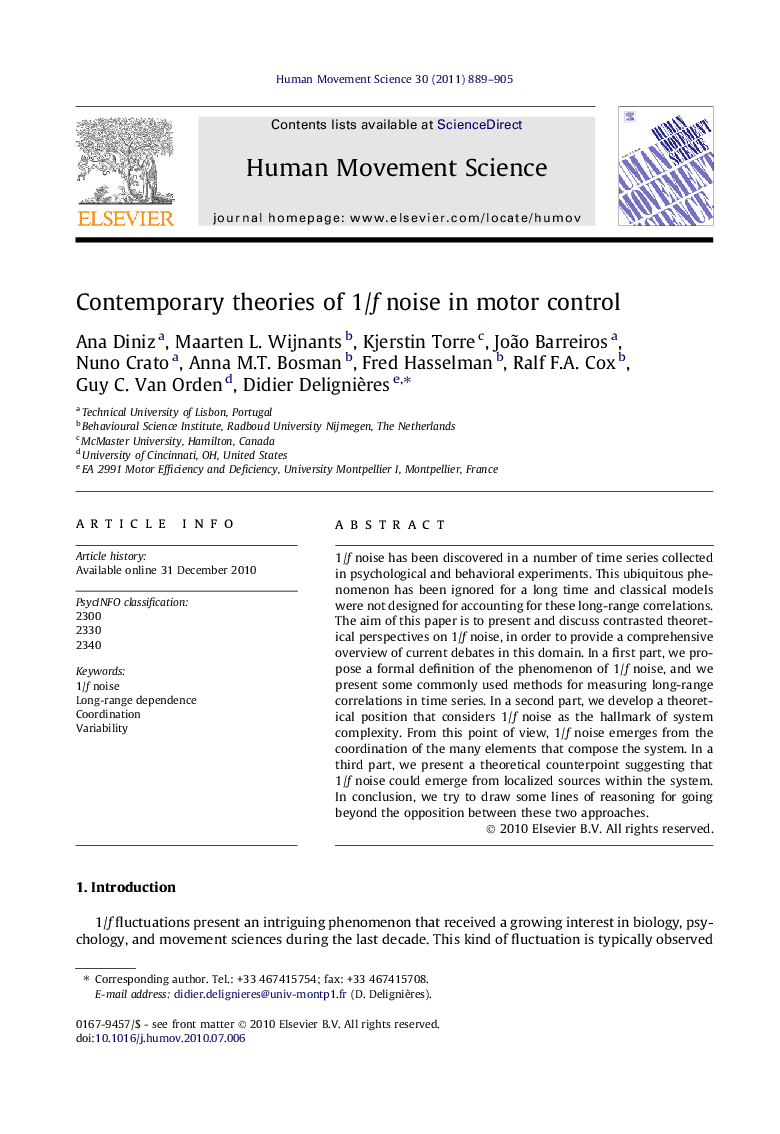| Article ID | Journal | Published Year | Pages | File Type |
|---|---|---|---|---|
| 928607 | Human Movement Science | 2011 | 17 Pages |
1/f noise has been discovered in a number of time series collected in psychological and behavioral experiments. This ubiquitous phenomenon has been ignored for a long time and classical models were not designed for accounting for these long-range correlations. The aim of this paper is to present and discuss contrasted theoretical perspectives on 1/f noise, in order to provide a comprehensive overview of current debates in this domain. In a first part, we propose a formal definition of the phenomenon of 1/f noise, and we present some commonly used methods for measuring long-range correlations in time series. In a second part, we develop a theoretical position that considers 1/f noise as the hallmark of system complexity. From this point of view, 1/f noise emerges from the coordination of the many elements that compose the system. In a third part, we present a theoretical counterpoint suggesting that 1/f noise could emerge from localized sources within the system. In conclusion, we try to draw some lines of reasoning for going beyond the opposition between these two approaches.
